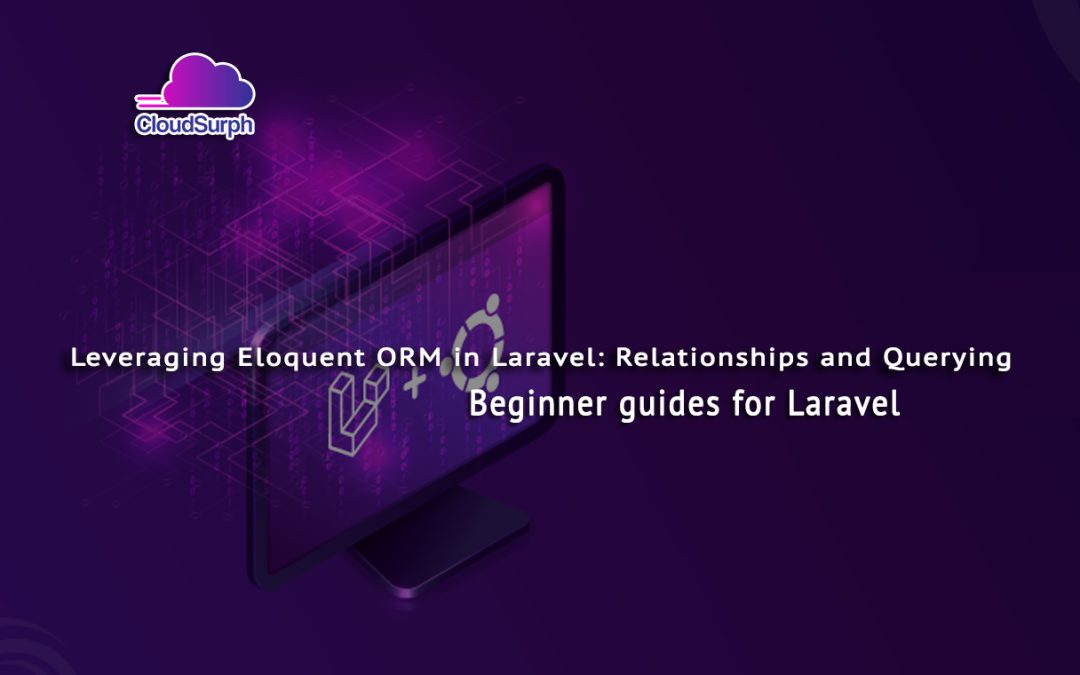Leveraging Eloquent ORM in Laravel Relationships and Querying
In this article we try to discuss about Leveraging Eloquent ORM in Laravel Relationships and Querying. Laravel’s Eloquent ORM (Object-Relational Mapping) provides an elegant and convenient way to work with your database tables and data. It makes it easy to define and manage relationships between your database tables and perform complex queries. In this response, I’ll cover how to leverage relationships and perform queries with Eloquent in Laravel.
Defining Relationships
Eloquent supports several types of relationships:
One-to-One Relationships: Use the hasOne and belongsTo methods to define a one-to-one relationship. For example, if you have a User model and a Profile model, where each user has one profile, you can define the relationship like this:
// User model
public function profile()
{
return $this->hasOne(Profile::class);
}
// Profile model
public function user()
{
return $this->belongsTo(User::class);
}
One-to-Many Relationships: Use the hasMany and belongsTo methods to define a one-to-many relationship. For example, if a Post model belongs to a User model, and a User has many posts:
// User model
public function posts()
{
return $this->hasMany(Post::class);
}
// Post model
public function user()
{
return $this->belongsTo(User::class);
}
Many-to-Many Relationships: Use the belongsToMany method to define a many-to-many relationship. For example, if you have a User model and a Role model with a pivot table role_user, you can define the relationship like this:
// User model
public function roles()
{
return $this->belongsToMany(Role::class);
}
// Role model
public function users()
{
return $this->belongsToMany(User::class);
}
Querying with Relationships
Once you’ve defined relationships, you can query related data using Eloquent’s expressive syntax.
- Create a Heap in JavaScript
- Inserting Elements into a Heap in JavaScript
- Removing Elements from the Heap in JavaScript
- JavaScript How to Calculate Age from Birthdate
- How to interact JavaScript with REST API
- How to break ForEach in JavaScript
- Store Data in LocalStorage in JavaScript
- Building a CRUD Application with Laravel
- Getting Started with Laravel: Installation and Setup Guide
Eager Loading
Eager loading is essential to prevent the N+1 query problem when working with relationships. You can use the with method to load related data efficiently:
$users = User::with('posts')->get(); // Eager load posts
Querying Relationships
You can query relationships using methods like whereHas, orWhereHas, and doesntHave:
// Retrieve users who have at least one published post
$users = User::whereHas('posts', function ($query) {
$query->where('is_published', true);
})->get();
Accessing Related Data
Once you’ve loaded related data, you can access it directly through the defined relationships:
$user = User::find(1);
$posts = $user->posts; // Access user's posts
foreach ($user->roles as $role) {
// Access user's roles
}
Customizing Relationship Queries
You can further customize relationship queries by adding constraints and additional methods to your relationship functions. This allows you to filter, order, and manipulate related data as needed.
public function publishedPosts()
{
return $this->hasMany(Post::class)->where('is_published', true);
}
// Usage
$user = User::with('publishedPosts')->find(1);
$publishedPosts = $user->publishedPosts; // Retrieve user's published posts
finally, Laravel’s Eloquent ORM provides a powerful and expressive way to work with relationships and perform queries on your database tables. By leveraging these features, you can build complex and efficient applications while maintaining clean and readable code.
If you want then buy a good, reliable, secure web hosting service from here: click here
In Conclusion, If you enjoyed reading this article and have more questions please reach out to our support team via live chat or email and we would be glad to help you. In Other Words, we provide server hosting for all types of need and we can even get your server up and running with the service of your choice.




